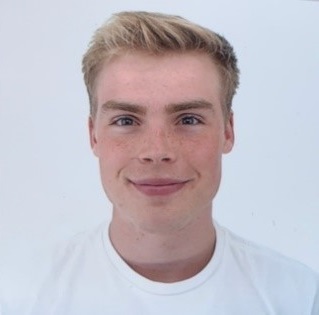Meet Exchange Student, Hjalti Nielsen ChE'21
POSTED ON: January 11, 2021
 The Albert Nerken School of Engineering participates in student exchanges with international institutions to offer undergraduate student the opportunity to study at Cooper. Exchange students spend one semester or one year studying a variety of courses ranging from the four core majors in the School of Engineering (civil, chemical, electrical, and mechanical).
The Albert Nerken School of Engineering participates in student exchanges with international institutions to offer undergraduate student the opportunity to study at Cooper. Exchange students spend one semester or one year studying a variety of courses ranging from the four core majors in the School of Engineering (civil, chemical, electrical, and mechanical).
Last fall semester, we welcomed Hjalti Þór Nielsen from the University of Iceland. We asked Hjalti to answer a few questions, to get a little insight on how their first semester at Cooper went:
1. Share a short bio about yourself.
My name is Hjalti Þór Nielsen and I am a Chemical Engineering exchange student from the University of Iceland. I am 21 years old and am currently in my third and final year. I come from Reykjavík, Iceland’s capital and largest (only) city. Despite being the capital, Reykjavík’s population is only around 130.000, so moving to New York was a big change of scenery.
2. What inspired you to choose your area of study? Why did you decide to attend the Cooper Union?
For the longest time I have been interested in renewable energy. Coming from Iceland, renewable energy production is a huge industry, both on a hydroelectric and geothermal level. I wanted to study Chemical Engineering in order to be able to work in that field. In my opinion, one of the biggest obstacles the human race faces at the moment is climate change and I want to help fight it by utilizing green energy. That’s why I am a Chemical Engineering major. Additionally, I’m interested in pharmaceuticals, so I’m taking a few biology and biochemistry electives.
Moving to New York City and studying at Cooper was always mainly about acquiring experience and meeting new people, and I have. Since I’ve been here, I’ve met and worked with a lot of interesting and fun people. My classmates and professors have been incredibly nice and welcoming, and I look forward to spending the rest of my time here alongside them.
3. Are you currently involved in any extracurricular activities/clubs?
Unfortunately, due to the pandemic, I have not been able to get into any extracurriculars. Hopefully, things will get better as spring progresses and I can change that.
4. What are your favorite aspects of Cooper? What makes this institution a unique place to learn?
My favorite aspect has to be the city. This is definitely the most exciting place I have ever had the pleasure of spending an extending period of time in and if possible, I will move permanently to New York soon. I have spent time with so many interesting people of all backgrounds since I came here last fall. This kind of variety of cultures and how they come together is both fascinating and beautiful.
5. What are your plans and aspirations after graduation?
I plan on getting my master’s degree very soon after I graduate. After that I hope to start working in green energy, wherever in the world that may be. In 10 years, I would like to be able to look back on the time I’ve spent and be proud of what I’ve accomplished. I would like to be able to say that I did what I could to prevent permanent environmental damage due to climate change.
6. What advice would you give to another student?
If you’re really interested in new experiences, you should definitely try moving abroad.




